It’s an incredibly humid 36 degrees at the Miyako Messe, located near the Heian Jingu shrine in Kyoto. The BBQ Food Truck near the entrance is playing “To Zanarkand” from Final Fantasy X as I make my way across the street to the Starbucks on the other side for my meeting. I’ve arrived about 15 minutes early, and I’ve decided to stand in line and try to get a coffee to kill some time. Unfortunately, the line at the Starbucks wasn’t budging an inch, and after about ten minutes, I instead started to look for my contact.
Shortly thereafter, a kindly gentleman guides me to a table that they’d been saving — James Wragg, of FREEMODE, part of Embracer Group. After a brief discussion about kids, learning Japanese, and how things are going on his end, Kimura-san rounds the table, a coffee and a wrap on his tray. “I’m sorry, but while we talk, I need to eat this,” he says. “Not a problem!” I respond. Eating a Starbucks wrap is far from the rudest thing anyone could do at a meeting, especially at 10:15 in the morning, in my opinion.
With Mr. Wragg’s help interpreting, we begin what is possibly the most thought-provoking conversation about game design and development I’ve ever experienced.
Note: This interview has been edited for clarity.
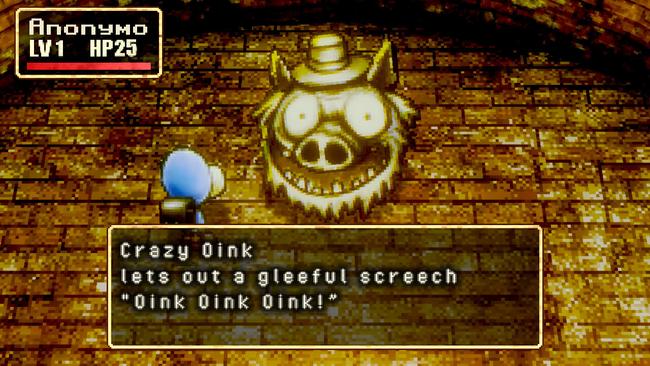
The Road To Stray Children
Stray Children, Onion Games’ upcoming RPG, is a story about a youth trying to survive in a strange world where adults, full of self-doubt, anger, and grievances, are out to get you. The game takes cues from previous projects in Kimura-san’s past: Moon, Chulip, and more. Curiously, I asked how we got here:
RPG Site: How did the concept of Stray Children come to life?
Yoshiro Kimura: When we were making Million Onion Hotel, I always knew I wanted to make another RPG. But RPGs require funds, more than anything else, so we really only had two choices to make it happen: Kickstarter and self-funding. With Kickstarter, I didn’t think that we were well-known enough to raise the appropriate amount of funding. Like, some people know me, but I’m more of a cult name. So, in order to self-fund, we decided to make some smaller games and build up some funding through sales.
Then we got enough money to make the game, so I asked myself, “What kind of RPGs do I like?” I prefer dark fantasy, even with a ‘pop’ style. Take Dragon Quest, for example: you’ve got the pop image of Akira Toriyama’s artwork, with the slimes and everything, but alongside that, there’s a dark side to the story. There’s also Ultima 3 through 5, Wizardry…I like the darker stuff, but I also like bittersweet fairy-tale stories as well.
Growing up in the 80s and 90s, a lot of the Japanese computer games that came out around that time had a strong influence on me. In Stray Children, one of the father characters is a video game developer, and they have that 80s/90s history with games, so to bring that to life in-game, I drew on my own background with that era of gaming.
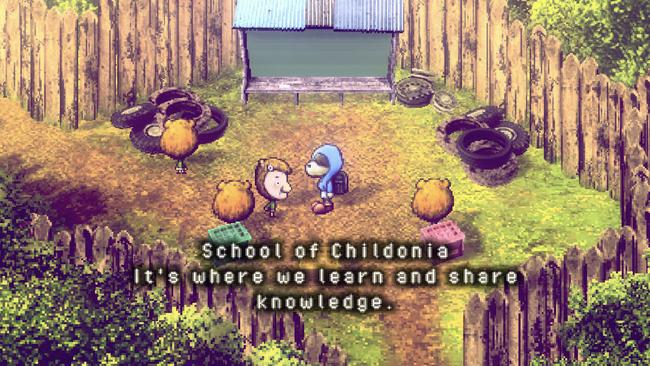
RPG Site: It’s strange, because I was having a thought about that this morning. My children love to play games like Minecraft and Kirby — which are not bad games, mind you, they’re great games — but I’ve been struggling getting my kids into the types of games I grew up with in the 90s and 2000s. Dragon Quest, Mario RPGs, Final Fantasy…they’ll come in and watch me play Biohazard (Resident Evil) or something, but with RPGs they seem to be a bit more hesitant. So hearing your thoughts on how we bring those experiences forward is really interesting.
So you mentioned making smaller games to build up to Stray Children — I know we’re peering into the crystal ball a bit here, but is this something you want to extend out into additional games, or is this a self-contained story that you’re finished with?
Kimura-san: Well, to be frank, it depends on if Stray Children sells. You know, when they made Dragon Quest, there wasn’t a plan for Dragon Quest 2 until it sold well. Then they made Dragon Quest 2. When I made Moon, or Chulip…well, some people loved it, of course, but not enough to drive a sequel. This is really important in our capitalistic market, of course. Fortunately, or perhaps unfortunately, after we finish with Stray Children, I will probably be thinking, “What should I make next?” I won’t be thinking about sequels — I cannot. I don’t have the luxury. (laughs)
That being said, Stray Children — while not strictly a sequel to anything — is kind of a spiritual successor to Moon. It tackles similar themes, so in a way, it’s sort of a “sequel”. I’m sure, like developers that work on direct sequels, I’ll be thinking something like “What do people who liked Moon think of this?” Everyone who works on a successor or sequel probably feels a little bit of anxiety in that regard. Those feelings never really fade, but the reality is this: if I keep focusing on what people think, or my anxiety on how a game will be received…the game will never get made. Instead, I choose to focus on my own thoughts and feelings and putting those into the game itself.
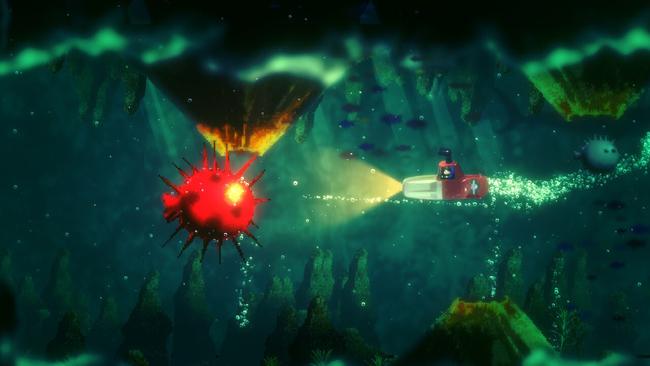
RPG Site: Most of the people I spend time with (and this may sound a little strange) tend to focus on the “soul” of the game, or what the developer intends for the player to experience versus “how well does the game sell” or “what score did the review outlets give it”, and I personally tend to believe that most normal people don’t actually care about those business-level results. With games like Chulip — a game about kissing people — I could tell that this is a game made out of love for the craft, and not a desire to score a 10 out of 10 with reviewers. So to hear you talk about making games with what you feel, it really makes me more interested and excited to see what you’ve done with Stray Children.
The nature of game development is cyclical, and Moon in particular has directly (or indirectly) influenced a handful of games, perhaps the most well-known of which are Undertale and Deltarune. I understand that you’ve played Undertale and some of Deltarune. Do you think that some of Undertale or Deltarune has ouroboros’d its way into Stray Children?
Kimura-san: When I talk about Toby Fox, I need to emphasize that you write about him well, please. *laughs* People notice whenever you write or talk about Toby Fox, and I don’t want people to think I’m using him. He is my friend, of course, and if I ask him a question, he’s always willing to help, but I ask that you please take care with this answer. *more laughing*
Toby Fox and I have been friends for a while, and I remember us asking each other to try each other’s games. He would ask me to try a better version of Undertale, I would ask him to try Million Onion Hotel, and so on. He’d offer some feedback, and we’d make some changes. This kind of communication was really nice to have. When I played Undertale, I felt very cozy, but in that moment, I realized that I don’t have enough courage to play other people’s games. I don’t really have the time, and I don’t want to play violent games, but Undertale was super good.
During Black Bird’s era, I talked with Toby Fox a lot, and I felt he has a very similar feeling despite being much younger. I asked him, “Why do you play my games?”, and he replied, “I love weird games.” Different age, different home country, but we are very similar and connected.
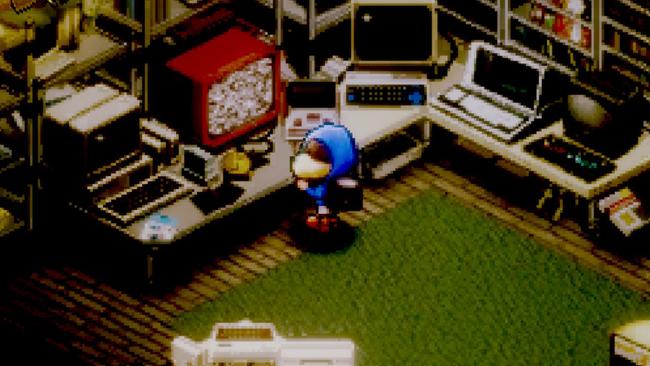
RPG Site: I can only speak about Americans, but people tend to gravitate towards violent media, or used to at least. But with games like Moon and Chulip and Undertale, I think we’re starting to see an open-mindedness towards weird or less-violent games.
Kimura-san: Cozy games.
RPG Site: Cozy games, right.
Kimura-san: But, the thing is, when I play my own games…they are not cozy. (laugh) It looks cozy, and when you play, you might even think “Oh, this game is gonna feel good!” But then…(laugh) I’m happy to hear my audience likes it when things get uncomfortable in my games, though.
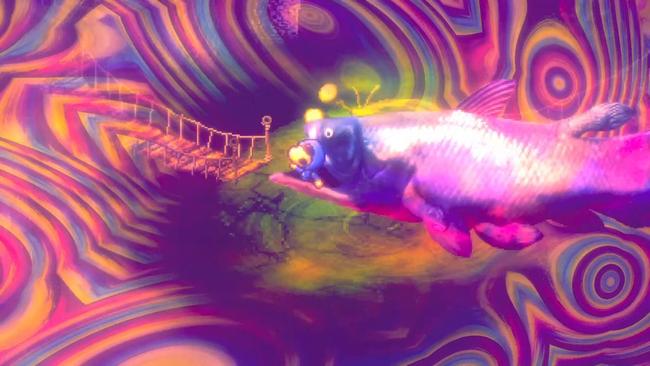
RPG Site: Now, you’ve been in the industry for a while, and you’ve seen the cycles of game development and business both in Japan and outside of it. Do you think that game development is something that smaller studios can continue to thrive in while big studios produce the big-box stuff, or do you think that there’s a cycling out of talent?
Kimura-san: Hmm…I don’t think I’m the right person for that type of question. It’s too big an issue for me to ponder. But what I can say is this: ten years ago, a lot of smaller studios began to appear while larger studios looked like they were about to break apart. I think something’s coming, for sure. A long time ago, like…we’re talking the 1980s, we were alone. I was a junior high school student, and I was making a new video game every three or four days. In that era, like me, a lot of kids were making video games alone. And when I say alone, I mean alone: music, art, programming, everything. About ten years later, indie studios started to make games with teams of 5, then eventually 10, then 20, 40, 100.
Now, studios are getting smaller again. We’ve got two extremes now: the large, massive teams making games like Grand Theft Auto with massive budgets. The game they make might be amazing, but it has to be amazing, because it has to make its money back. It has a huge marketing budget because it has to move a lot of units to justify its cost and also make a profit. With smaller teams, the budget is smaller, but that means the risk is smaller, and they can be more flexible — they can change direction if needed. It’s like a cruise ship: even to turn a little, it takes a monumental amount of effort, while smaller studios can be considered something like a speedboat.
With Stray Children, the entire reason we were able to make it is because we are a small team. As long as the company doesn’t go under, we can continue to make games. There’s no producer telling us “no” — I am the producer. And director. There’s no external pressure on us from higher-ups.
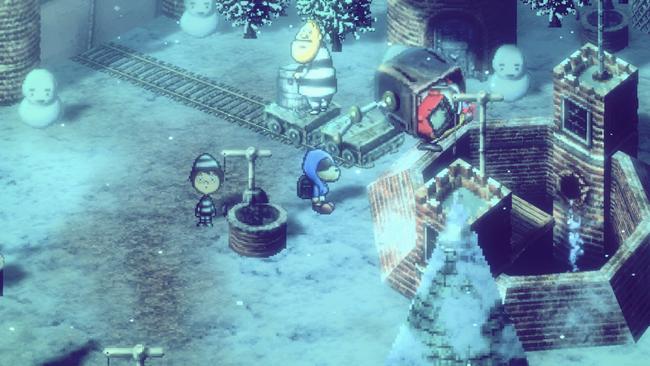
RPG Site: One final question, since I know you’re pressed for time. My co-worker, Mikhail, would probably be upset if I didn’t ask this: what’s your favorite type of coffee?
Kimura-san: Coffee, I make by myself. Coffee and game development is the same for me, actually. Buying coffee from a Starbucks, for example — it’s got a good taste, but it doesn’t give me anything more than temporary happiness. Homemade coffee, where I go through the act of making it myself, is the best. It’s not the final product that ultimately gives me pleasure, it’s the act of creating and making it right. That’s more important to me than reaching the end, the act of creation, and the experience of doing it myself.
Thank you to Kimura-san and Mr. Wragg for taking the time to meet with us.
Stray Children releases in 2025, and can be wishlisted on Steam.